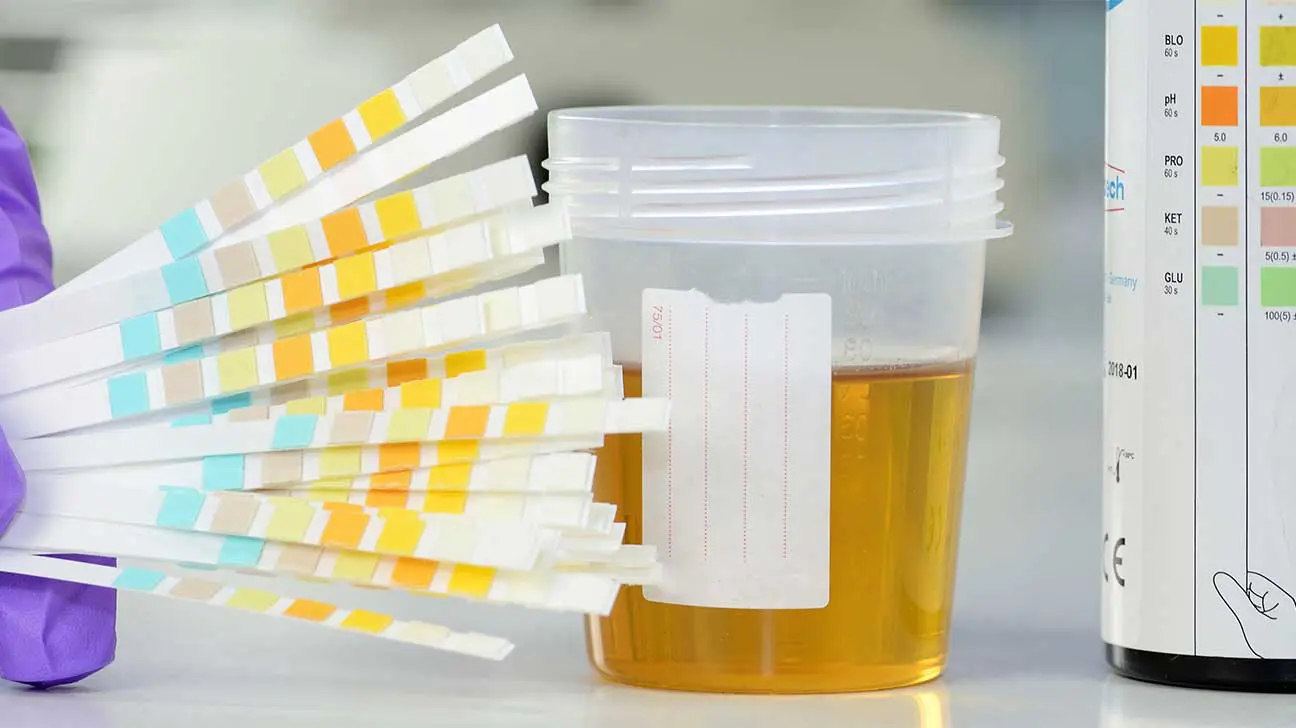
Methamphetamine, also known as crank or crystal meth, is a highly addictive stimulant drug. An estimated two million people in the United States alone used meth in 2019.
One common question from people who meth illicitly or take Desoxyn (a prescription form of methamphetamine) is how long it can show up in a urine test.
On average, meth can be detected in urine for up to four days. This is longer than the side effects of meth, which can last from three to 12 hours.
Methamphetamine use can also be detected by:
- saliva tests
- blood tests
- hair follicle tests
Meth remains detectable in the urine for longer if you’ve developed a physical dependence on meth or are addicted. A positive test result for meth use may indicate a substance abuse problem.
Meth Detection Time In Urine
The half-life of meth is about 10 hours. This is the amount of time it takes for half of the drug to be metabolized in the body and eliminated from the bloodstream.
Meth is largely excreted from the body unchanged. However, a small percentage of meth taken may be broken down into amphetamine and other metabolites when metabolized by the liver.
Meth metabolites may be detected in the urine for anywhere from one to four days. This detection window may vary depending on a wide range of personal and biological factors.
What Factors Can Affect Detection Time?
While four days is the maximum amount of time meth will show up in a urine screen on average, this time-frame isn’t the same for everyone.
Factors that can affect detection time include:
- Frequency of use: Meth will stay in your system longer if you use it regularly versus if you’ve only used it once.
- Amount of meth used: Larger amounts of meth will take longer to be eliminated from the body. The same applies for taking a single dose versus taking multiple doses.
- Method of use: The half-life of meth can vary depending on whether it enters the body by snorting, injecting, smoking, or swallowing it.
- Polydrug abuse: Taking meth with other drugs (including alcohol) can affect how long it takes to leave your system.
- Metabolism: Having a higher metabolism can cause drugs like meth to be metabolized and eliminated from your system faster.
Overall health status, age, and hydration are factors that can also affect drug detection times, to an extent.
How To Get Meth Out Of Your System
There’s no quick way to get meth out of your system. If you’re trying to get meth out of your body before taking a drug test, only time will clear it from your system.
For people who are addicted to meth, this isn’t easy. Quitting meth can be very difficult physically and psychologically for people struggling with addiction.
Trying to stop using meth on your own may trigger withdrawal symptoms within hours of your last use, including symptoms of psychosis and strong drug cravings.
Seeking detox through a medical or behavioral health treatment center is the safest way to get meth out of your system.
Detox centers offer a supportive, supervised setting and treatment for withdrawal symptoms.
Getting Help For Meth Addiction
Meth is an addictive drug. Abusing meth over a period of time can lead to drug dependence and addiction.
Meth addiction is commonly treated through inpatient and outpatient treatment programs. Within a treatment program, you can receive medical, behavioral, and mental healthcare.
Without treatment, meth addiction can take over your life.
It can significantly harm physical health, mental health, and lead to serious health consequences, such as psychosis, heart problems, and death.
If you or a loved one is abusing meth, don’t wait to seek help. Call our helpline today to find the right meth addiction treatment program for you.
Addiction Resource aims to provide only the most current, accurate information in regards to addiction and addiction treatment, which means we only reference the most credible sources available.
These include peer-reviewed journals, government entities and academic institutions, and leaders in addiction healthcare and advocacy. Learn more about how we safeguard our content by viewing our editorial policy.
- Redwood Toxicology Laboratory—Laboratory Testing Reference Guide
https://supremecourt.nebraska.gov/sites/default/files/Programs/CIP/events/redwood/LAB_Reference_Guide.pdf - U.S. National Institute on Drug Abuse (NIDA)—Methamphetamine DrugFacts
https://www.drugabuse.gov/publications/drugfacts/methamphetamine - U.S. National Library of Medicine: MedlinePlus—Drug Testing
https://medlineplus.gov/lab-tests/drug-testing/


